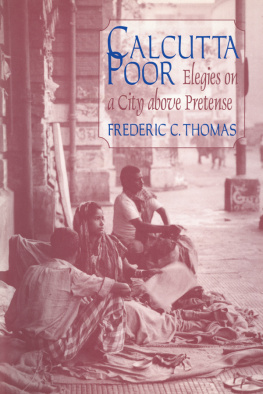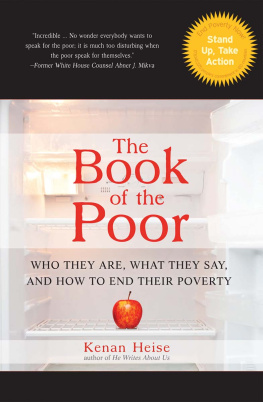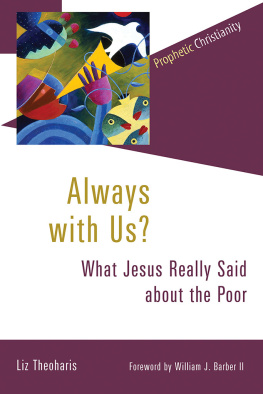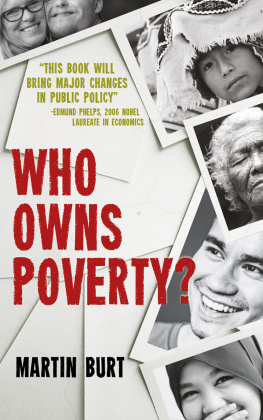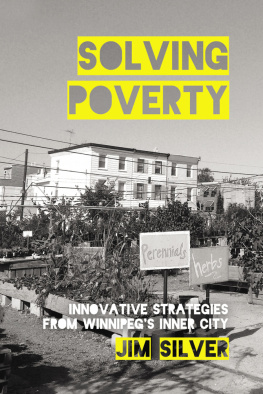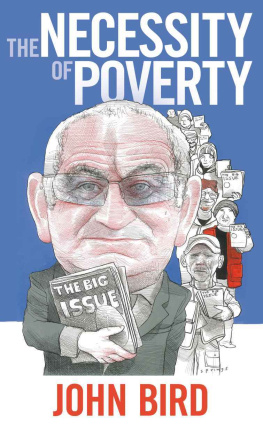W ith growing numbers of poor in their cities, developing countries face increasing difficulty in offering living standards consistent with the expectations of modern life. In this regard Calcutta is often seen as the classic case of urban failure. The city is notorious for its povertyperhaps unfairly so. Its sidewalk dwellers, street children, and scavengers have become a clich for the worst in human degradation. Meanwhile, comparatively little attention has been paid to Calcuttas experience in addressing the needs of its poorest citizens.
Both a historical and an anthropological perspective are needed. Present-day conditions must be seen against the backdrop of the citys history. Neighborhood studies focusing on the immediate context in which people live are essential, of course. But the lessons that emerge from these studies are rarely heeded by politicians and planners attuned to different agendas and city-wide solutions. The observations tend to be too anecdotal and relativistic to be of much practical use, unless placed in a broader policy framework. Also, such studies are often frozen in time, so that little is known of the dynamics of poverty and what the future will be like. To do more than simply enrich the senses, ethnographies must reach theoretical conclusions while at the same time not blotting out the rich detail of everyday life. Otherwise, there is the risk, as in many theoretical studies, that poverty becomes an abstraction, and the recalcitrant facts and ambiguities that are exposed at the neighborhood level are left largely unexplained.
This study attempts to bridge this gap. It is not about the urban development of Calcutta, on which there is already a vast body of literature. Nor is it an in-depth study of a particular slum for the purpose of extrapolating experience which might have more general application and provide broad insights and lessons. The diversity of Calcuttas population (castes, creeds, natives, and migrants) and the variety of slum environments (multistory tenements, bustees, refugee colonies, squatter settlements, sidewalks) would limit the value of any attempt at generalization on the basis of a particular slum.
This study describes the living and working conditions of Calcuttas poor in an effort to get beyond generalities and better understand the practical realities of impoverishment. It draws heavily on investigations done by others. In dealing with its poverty, Calcutta has had a long experience which should be looked at critically to determine the extent to which solutions are possible and, conversely, the extent to which certain forms of poverty may be perversely immune to treatment.
To do this, I have reviewed much of the literature, including many unpublished papers. On several occasions since the late 1970s I have made one- and two-month visits to Calcutta and have met with municipal officials, representatives of charitable organizations, researchers, businessmen, and bustee leaders. To acquire a street-level perspective and avoid overly theoretical speculation, I have spent many hours walking through different slums, observing activities taking place in the labyrinth of alleys and courtyards and talking informally to the people I met. A rudimentary command of Bengali was of great help in establishing contact and in validating the sincerity of my interest. This study, in short, stems more from a pleasurable and spontaneous process of confirming and supplementing the oral and written observations of others than from any rigorous process of participant observation or structured interviews.
Acknowledgments
My investigations would not have been possible without the valuable help I received from many persons in Calcutta. I am especially indebted to Sudhendu Mukherjee, who first introduced me to the bustees in 1978 and inspired me to pursue the subject further. I aloso want to thank those who shared with me their valuable insights and experience in dealing with Calcuttas poor and provided me with personal papers and studies which would not have been otherwise available. In this respect, I should particularly mention Mohammed Alamgir, Nirmala Banerjee, Tapan Banerjee, Mohit Bhattacharya, Bimalesh Bhattacharya, A.N. Bose, Eliana Chaudhuri, Samir Chaudhuri, Ashin Das, Prabhat R. Das, Abhijit Dasgupta, Biplad Dasgupta, Leslie Green, Animesh Haider, Vijay Jagannathan, Purnendu Jha, Raj M. Kapoor, M.S. Maitra, Rabial Mallick, Bijli Mallik, Braz Menezes, Madhu Mishra, Shourabh Mukerji, D.K. Roy, Kalyan Roy, Subhankar Roy, Asok Sen, Jai Sen, and K.C. Sivaramakrishnan. For her kindness and endless patience in teaching me Bengali, I express. my sincere gratitude to Aditi Sen.
I am happy to acknowledge the grant support provided by the Richard Lounsbery Foundation in New York and particularly wish to thank its late President, Alan F. McHenry. My thanks go also to the Society for Applied Anthropology, which sponsored my research, and to the American Institute for Indian Studies, which facilitated my work in Calcutta and helped me obtain official approval from the Government of India. I am most appreciative to the Center for South Asian Studies for their cooperation in providing access to the library facilities of the University of California, Berkeley.

